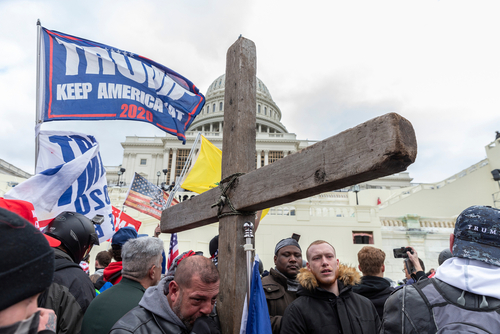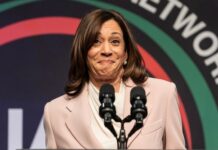
In recent developments that have emerged as a game changer in the ongoing J6 investigation, a series of declassified emails from within the FBI have come to light, offering the public unprecedented insight into the operations and communications that took place during a pivotal moment in American history. These documents, which have stirred significant discussion among political watchdogs and citizens alike, present a scenario that requires meticulous examination and reflection.
The emails in question unveil a complex tapestry of private correspondences among top officials within the bureau. A close reading of the contents exposes the previously hidden dynamics and decision-making processes that were in play. It is evident that the officials were deeply engaged in the orchestration of responses to the events surrounding J6, showcasing the intricacies of federal law enforcement operations under high-pressure circumstances.
Calling Jan 6th an insurrection is just another lib attempt to change the definition of a word for political purposes. pic.twitter.com/1zBy0vlirt
— Formerlyknownas_Stan🇺🇸🇺🇸 IFBAP (@onceknownasstan) February 23, 2024
These revelations spark crucial questions about transparency and accountability within federal agencies. To many, especially in the conservative community, the delayed unearthing of such communications is indicative of the obstructions to a punctual and full public understanding of the events. The intricate nature of these emails points towards a level of bureaucratic complexity that some critics argue could cloud the clarity and straightforwardness expected from public institutions.
Added to this is the concern surrounding the decision-making autonomy of these agencies. For those wary of expansive governmental power, the details within the emails are an affirmation of the need for stricter oversight and more rigorous checks. The documents, as they uncover the behind-the-scenes actions, bolster the argument that federal agencies have far-reaching influence, which must be balanced with the public’s right to informed discourse.
NEVER FORGET FBI/DOJ/PELOSI SET-UP JAN 6TH CORRUPT CRIMINALS 😡
FREE THE PRISONERS 🙌 pic.twitter.com/uA3XM3QDEr— AMargaretAp1 🇺🇲 (@AnnaMargaretAp1) February 23, 2024
The internal communication also raises discussions about the allocation of resources and prioritization within the FBI during a period fraught with tension and uncertainty. They shed light on how the agency navigated a myriad of security challenges, decisions that carry weight not just for their immediate consequences but also for how they shape the country’s law enforcement strategies moving forward.
Moreover, these emails serve as a critical piece of the larger mosaic regarding J6. They add depth to the ongoing narrative and provide fodder for those who have been dissatisfied with the mainstream recounting of events. As the conservative perspective often seeks to push back against prevailing narratives, the addition of these documents to the corpus of public knowledge represents an opportunity to reassess and potentially recalibrate the historical account.
It is important to recognize that the implications of such disclosures go beyond the specifics of J6. They touch upon the broader conversation about civil liberties and the tensions inherent in balancing those freedoms with security initiatives. Conservatives have traditionally championed the sanctity of individual rights, and in many analyses of the emails, there is an undercurrent of concern for how these actions might reflect broader approaches to civil liberties.
Finally, the unsealing of these emails is a testament to the relentless pursuit of truth and integrity, hallmarks of an engaged and informed citizenry. They underscore the necessity for continued vigilance in the face of governmental overreach and echo the calls from conservative quarters for transparency. As the public dissects these documents, it is essential to maintain a guarded optimism that such disclosures might lead to reforms that will prevent overreach in the future, strengthening the foundations of our democratic processes.






